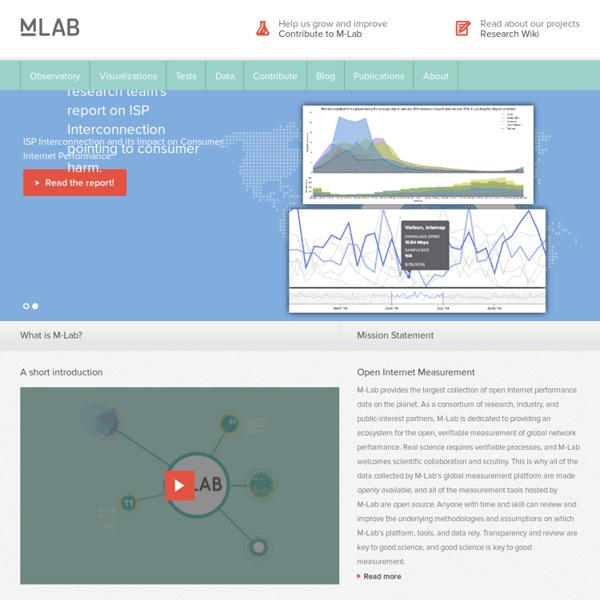



Slashdot: News for nerds, stuff that matters Transparency Report Axence Software - Network Monitoring, Network Mapping & Application Monitoring- NetTools Pro Axence NetTools is a world-class tool for network scanning, monitoring and administration. Including: network scanner, list of inbound and outbound connections for the machine, port scanner. The software is completely free of charge, both for home and commercial use – all you have to do is to register. The 32 Totally Essential (and Free) Apps for Every New PC You have to admit, Windows is a pretty barebones operating system, feature-wise. After a fresh install of XP or Vista (perhaps following a Clean Start), you're faced with a barren Start Menu and an empty desktop that's beaming with limitless potential. The problem is that it's up to you to hunt and download those applications that you really need in your day-to-day computing experience. We've put together a list of what we think are the most essential PC apps for every Maximum PC reader. And at the end of the feature, we'll even show you how to install these apps in one fell swoop with a special configuration file we've created. WinDirStat Have you ever sorted a folder by file size, hoping to track down a hard disk hog, only to be frustrated by the fact that Windows doesn’t let you see the size of nested folders’ contents? AnyDVD For hassle free rips of DVD, Blu-ray, and even HD-DVD content, there's no simpler app to use than AnyDVD. Foxit PDF Reader VMWare Server Steam Dropbox
Taking on Facebook, Google’s Social Network Allows Data Exporting | Epicenter Support -- Knowledge Base -- Loopback Connections Setting up a Website: Webservers and DynDNS Getting Started Welcome to the Dyn Wizard! Step 1 of 7: Install your server The first step is to set up the services you want to run from your network. Once you have chosen the services you wish to use, installed them, and tested them locally, you may move to the next step. Step 2 of 7: Configure your firewalls Once your server application is installed, you will need to allow visitors to connect to your computer to view your website. Step 3 of 7: Configure port forwarding in your router Now that your computer is configured to allow traffic, the next step is to configure your network itself to allow remote traffic. Step 4 of 7: Bridge your modem If your cable or DSL modem was constructed in the last couple years, you may need to “bridge” the device. Step 6 of 7: Create an account and DynDNS hostname Now that your services are installed and working, and visitors from outside your network can remotely access your services, you can begin using DynDNS.
How to make an external laptop graphics adaptor Laptop graphics have always been something of a joke performance wise. Nvidia and AMD do try, but cramming all those millions of transistors into a low-power, compact package just leads to massive expense and an inability to upgrade. Wouldn't it be perfect if you could simply use a standard external graphics card to power your laptop's 3D graphics? Article continues below The good news is that you can. We'd like to say it's as simple as that, but this project does have a few sticking points. The second is Windows 7, as it handles multiple display drivers far more adeptly than anything else. Also if your laptop has more than 2GB of memory a 64-bit installation is also required, as otherwise you'll hit the 4GB address space limit hard. Even though the card has its own memory the processor still needs to be able to address it, this address space is added on top of any existing system memory plus any other hardware resources, including the integrated graphics memory space. Troubleshooting 1.
the Data Liberation Front Importante: i dati di Google che scarichi non vengono eliminati dai server di Google. Scopri come eliminare il tuo account o come eliminare le tue attività. Puoi esportare e scaricare i tuoi dati dai prodotti Google che utilizzi. Puoi esportare, ad esempio: Email Documenti Calendario Foto Video di YouTube Puoi creare un archivio per conservare i tuoi dati o utilizzarli in un altro servizio. Importante: se le azioni vengono considerate rischiose, potrebbero non essere disponibili o essere rimandate per proteggere il tuo account. Passaggio 1: seleziona i dati da includere nell'archivio da scaricare Visita la pagina Scarica i tuoi dati. Passaggio 2: personalizza il formato dell'archivio Metodo di recapito Invia tramite email il link per il download Ti invieremo un link via email per scaricare l'archivio dei tuoi dati di Google. Seleziona Invia tramite email il link per il download come "Metodo di recapito". Aggiungi a Drive Seleziona Aggiungi a Drive come "Metodo di recapito". Aggiungi a Dropbox Note
txtDrop.com - Completely Free Text Messaging 90% email traffic = spam Since its launch in October, 2004 Project Honey Pot has made some interesting progress in their war against spam email. The project is a distributed system used to identify spammers and spambots operating across the Internet. To put it simply, Project Honey Pot lays millions of traps around the Internet (66,393,293 as of this writing) baited with specific email addresses that are configured to forward received emails to the Project Honey Pot system. Since these are not email addresses used by real individuals virtually every email received is positively identified as spam. Looking at their statistics it is hard not to be impressed with the effectiveness of this system: 85,989,816 spam servers identified; 1,546,419,133 unique spam messages processed through their system. Spam remains one of biggest problems facing the Internet today. To help tackle the spam issue, the information and statistics collected by Project Honey Pot are put to good use. By Mike Dailey, IT Architect and Sr.
MEDIAPORTAL - a HTPC Media Center for free! - MEDIAPORTAL Should I Change My Password? Terms of Service; Didn't Read